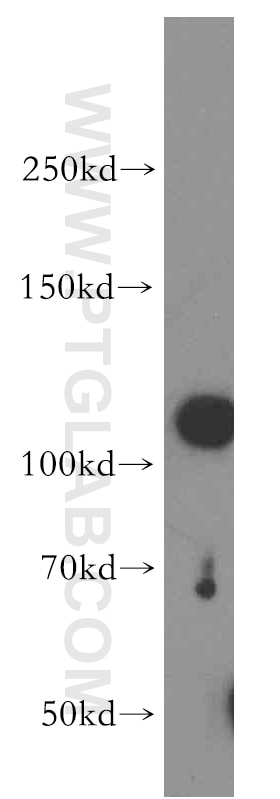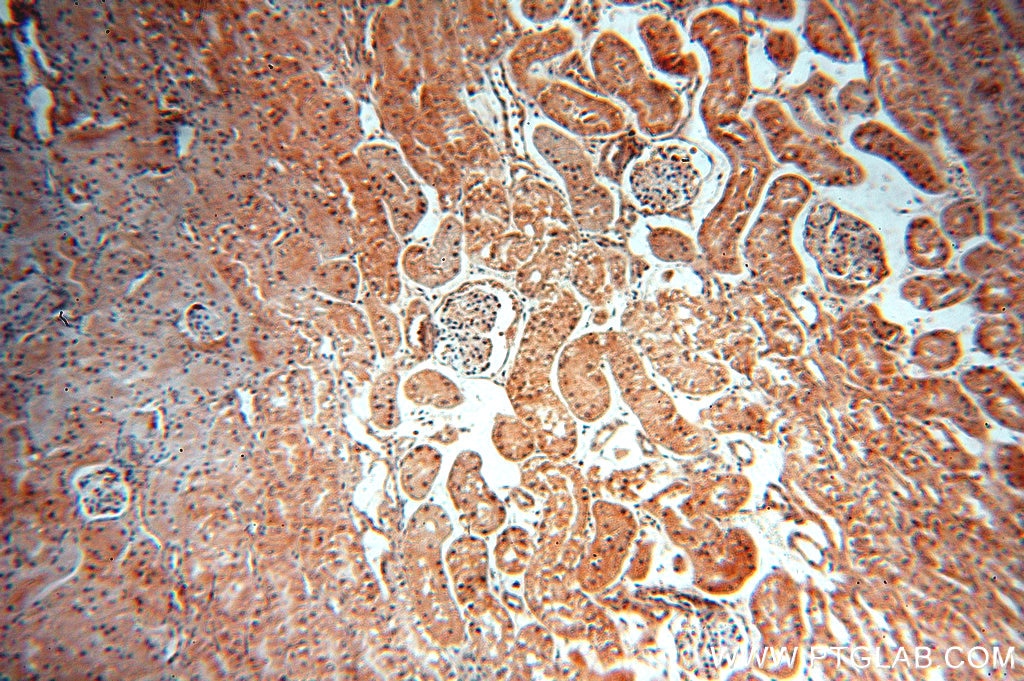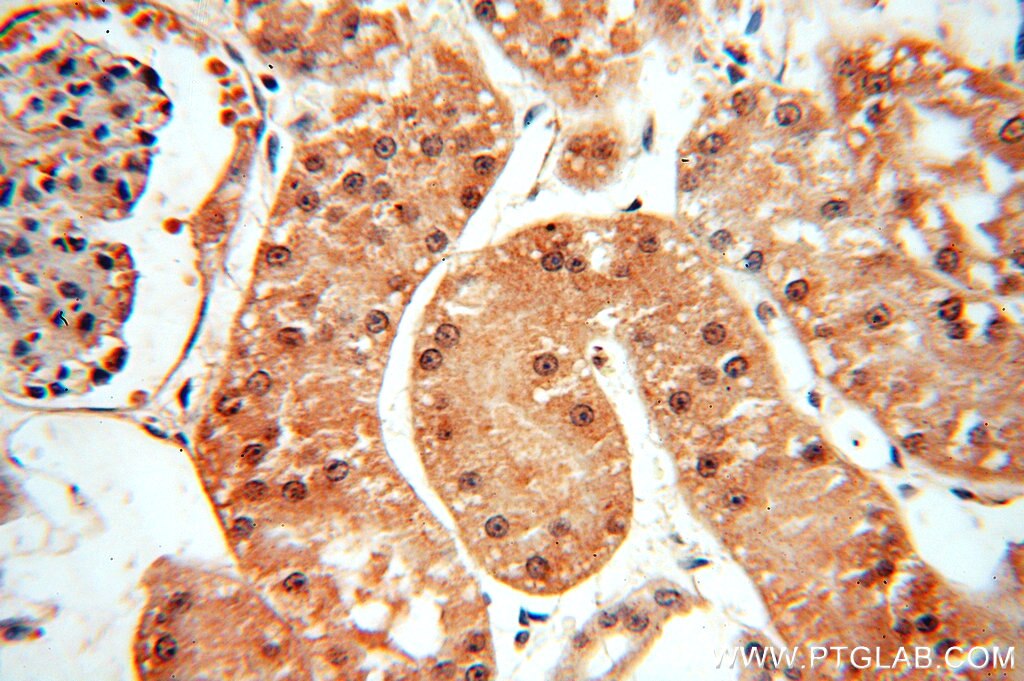Anticorps Polyclonal de lapin anti-CRM1
CRM1 Polyclonal Antibody for ELISA
Hôte / Isotype
Lapin / IgG
Réactivité testée
Humain, rat, souris
Applications
WB, ELISA
Conjugaison
Non conjugué
N° de cat : 12915-1-AP
Synonymes
Galerie de données de validation
Applications publiées
| WB | See 1 publications below |
Informations sur le produit
12915-1-AP cible CRM1 dans les applications de WB, ELISA et montre une réactivité avec des échantillons Humain, rat, souris
| Réactivité | Humain, rat, souris |
| Réactivité citée | Humain |
| Hôte / Isotype | Lapin / IgG |
| Clonalité | Polyclonal |
| Type | Anticorps |
| Immunogène | CRM1 Protéine recombinante Ag3488 |
| Nom complet | exportin 1 (CRM1 homolog, yeast) |
| Masse moléculaire calculée | 1071 aa, 123 kDa |
| Poids moléculaire observé | 100-110 kDa |
| Numéro d’acquisition GenBank | BC032847 |
| Symbole du gène | CRM1 |
| Identification du gène (NCBI) | 7514 |
| Conjugaison | Non conjugué |
| Forme | Liquide |
| Méthode de purification | Purification par affinité contre l'antigène |
| Tampon de stockage | PBS with 0.02% sodium azide and 50% glycerol |
| Conditions de stockage | Stocker à -20°C. Stable pendant un an après l'expédition. L'aliquotage n'est pas nécessaire pour le stockage à -20oC Les 20ul contiennent 0,1% de BSA. |
Informations générales
CRM1 (chromosome region maintenance 1, also known as exportin-1 or XPO1), a member of the karyopherin β family of transport receptors, is an important nuclear export receptor recognizing proteins bearing a leucine-rich nuclear export signal (PMID: 9323133). CRM1 is the major receptor for the export of proteins out of the nucleus and is also required for transport of many RNAs (PMID: 17317185). In addition to nuclear export, CRM1 also plays a role in centrosome duplication and spindle assembly (PMID: 22773955). Elevated CRM1 expression has been reported in several cancers, which implicates CRM1 as a potential anti-cancer drug target (PMID: 22677130; 21683812 ).




